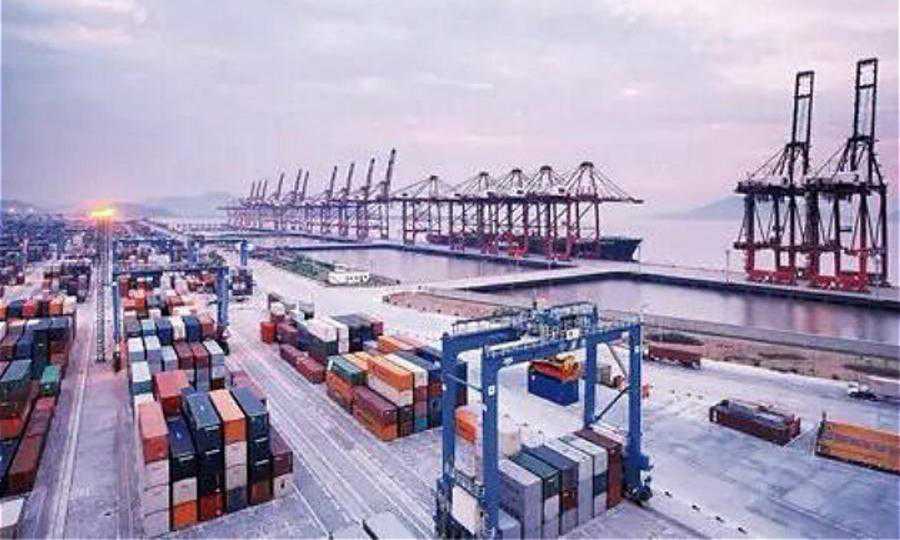China to improve foreign trade, forex management
07 November, 2019

State Council meeting has unveiled 12 new measures to optimize foreign exchange management and promote cross-border trade and investment. These measures target reform of the country’s current and capital accounts.
Chinese Premier Li Keqiang chaired the October 23 regular meeting focused on improving the quality of the country’s external trade.
Regarding the current account, China will simplify e-payment procedures for micro and small cross-border e-commerce companies, improve the forex reporting process for exporters, allow enterprises to make their own decisions on whether to set up verification accounts and allow project contractors to put their overseas funds under unified management.
As for reforms of the capital account, the country will allow non-investment foreign firms to invest in Chinese equities with their capital funds, expand the pilot program that simplifies payment procedures, allow banks to handle the registrations related to foreign debt cancellation, remove the limit on the number of foreign currency accounts that can be opened under a capital account and facilitate foreign exchange settlement.
It was the fifth time this year that the State Council rolled out plans to stabilize foreign trade.
Following the meeting’s decision, the State Administration of Foreign Exchange (SAFE) issued the “Notice on further promoting cross-border trade and investment facilitation” on Oct. 25, in order to implement the 12 new measures.
Prior to this, SAFE had launched pilot programs in the Guangdong-Hong Kong-Macau Greater Bay Area, Shanghai Municipality and Zhejiang Province to allow banks to provide more convenience in trade payments to companies with good credit profiles. When a company in the pilot program uses renminbi funds in its capital account to pay for its domestic expenses, it does not have to seek approval from the bank.
Until now, 12 pilot free trade zones (FTZs) in Shanghai and Tianjin, as well as Fujian, Zhejiang, Jiangsu provinces and Shenzhen and Ningbo, have already been included in the pilot programs. After the newly-announced reform, the pilot programs will be expanded to six new pilot FTZs established this year and to all of Shanghai. It will be expanded nationwide in due course.
At present, China is facing a tough foreign trade situation. The International Monetary Fund lowered its 2019 global economic growth forecast to 3% while the World Bank also slashed its global growth projection for this year and next year and warned that the global economy was suffering from significant downside risks.
A slowing world economy and prolonged trade disputes have brought global trade to a standstill. The United Nations’ forecast for global trade growth dropped sharply by 0.8 percentage points to 2% for this year while the World Trade Organization also decreased its growth forecast for the world’s 2019 commodity trade growth to 1.2%.
As the world’s largest trading country, China cannot stay unaffected by the global trade situation.
Although China has a huge market and massive domestic demand, its economy has also integrated deeply into the world economy. Exports of goods and services still account for a large proportion of the Chinese economy. Stabilizing foreign trade remains an important task for China.
According to the General Administration of Customs statistics, China’s imports and exports totaled 22.91 trillion yuan (US$3.24 trillion) in the first three quarters of this year, up 2.8% from the same period last year.
During the period, China’s exports grew 5.2% to 12.48 trillion yuan while imports decreased 0.1% to 10.43 trillion yuan. China’s trade surplus increased 44.2% to 2.05 trillion yuan.
In September, China’s imports and exports fell 3.3% to 2.78 trillion yuan. Exports dropped by 0.7% to 1.53 trillion yuan while imports also declined 6.2% to 1.25 trillion yuan.
Whether foreign trade, one of the three economic growth engines in China, can maintain sustainable and healthy growth will affect the job market and people’s livelihood. It will also have impacts on the overall economic performance and investors’ confidence in the Chinese economy.
In a nutshell, both local and foreign firms will benefit from the 12 new measures.
The World Bank said in a recent report that China’s business environment ranking has increased to No. 31 globally for 2019, from No. 46.
China will continue to provide more convenience to exporters and investors and steadily open up its capital accounts and financial markets.
